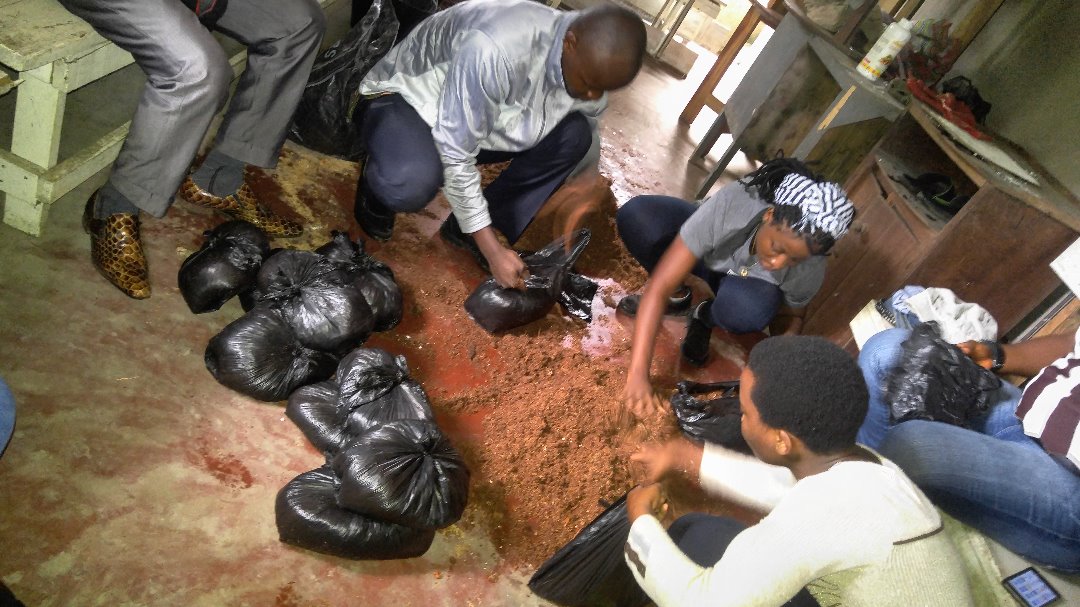 The process of mushroom propagation at the farm in Southwestern Cameroon. Photo courtesy of RUWDEC
The process of mushroom propagation at the farm in Southwestern Cameroon. Photo courtesy of RUWDECWe’re sensitizing people to the value of mushrooms- Enow Mary, Solar Mama
Assisted by Rural Women Development Center– RUWDEC, two Solar Mamas in our current batch set up and run a prosperous oyster mushroom farm in SouthWest Cameroon. The growing team is nearly all women-operated and often hosts workshops around the benefits of eating and propagating mushrooms. Requiring minimal capital and moderate labour, mushroom farms have been identified in Cameroon as a sustainable livelihood opportunity that is revitalizing its market popularity.
Innovative livelihoods are helping to regenerate resources in depleted regions of the Global South. This pairs naturally with cultivating a means of self-reliance for women who are most affected by regional issues including Climate Change, poverty and civil violence. Mushroom farming for these Solar Mamas of Cameroon and their local partners has presented an enterprise avenue with an abundance of beneficial impacts. At the top of the list of impacts: it’s a more accessible income- generator than one may assume.
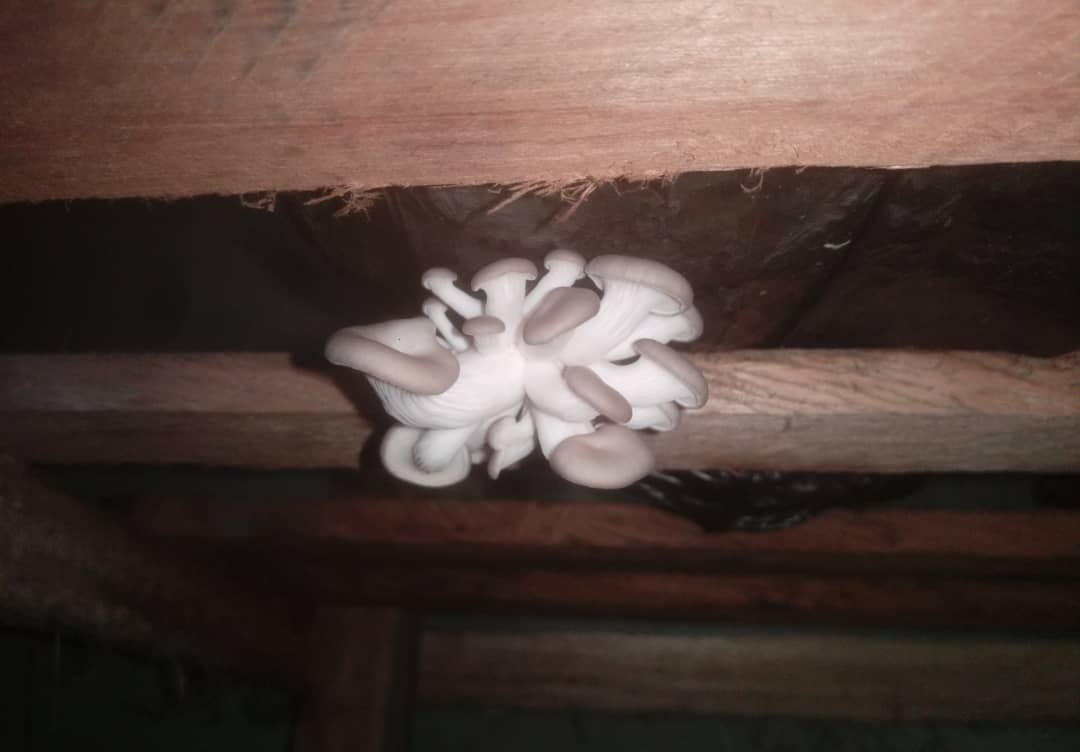 Oyster mushrooms are currently being grown due to their high nutritional content and quick growth cycle. Photo courtesy of RUWDEC
Oyster mushrooms are currently being grown due to their high nutritional content and quick growth cycle. Photo courtesy of RUWDECA political crisis that began in 2016 has ravaged the landscape in several English-speaking regions of Cameroon. The outcome today is being referred to as “volatile and unpredictable”, as over 500000 civilians have been displaced in the crossfire, being forced to suddenly squeeze into saturated urban regions en masse. Over 68% of the conflict-affected victims are women and youth. Disenfranchised women encounter barriers to their well-being which include rape, sexual exploitation, and early pregnancy. However, these numbers are statistically shown to decline when viable subsistence opportunities are available.
Organizations such as RUWDEC in SouthWest Cameroon recognize the potential to reverse these setbacks and foster prosperity through income-generating activities. The activities offer women a route to autonomy and recovery from crisis trauma. Reacting to the rampant influx of deforestation and soil degradation, RUWDEC supports initiatives that can utilize and build upon the pre-existing resources that are available as opposed to operations that don’t feed the land and its people.
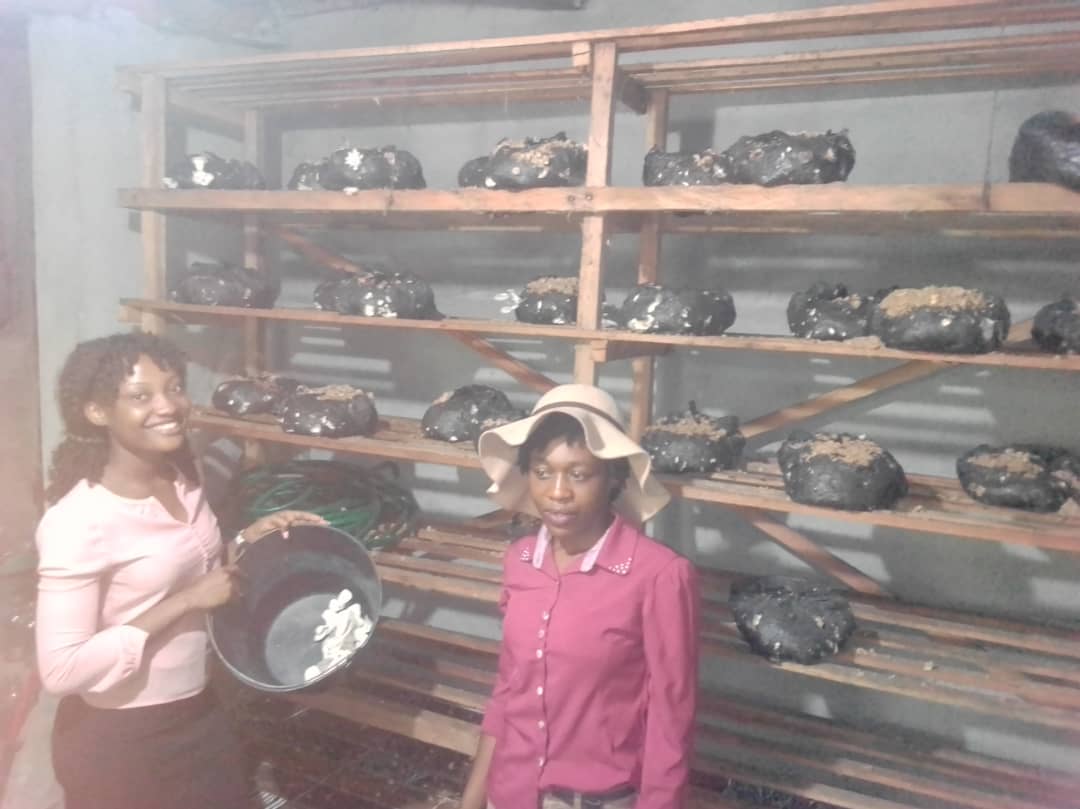 Volunteers harvest mature mushrooms from the cultivation shelves in the background. Photo courtesy of RUWDEC
Volunteers harvest mature mushrooms from the cultivation shelves in the background. Photo courtesy of RUWDECMushroom farming is a synthesis of valuable crop and affordable, labour-light venture. It requires no soil, basic supplies, a meagre 21-28-day harvest window and minimal space requirements. Typically grown indoors, expensive pest control is unnecessary and sunlight or heavy irrigation are not required. Most supplies can be locally sourced and have a high production yield.
Oyster and other mushroom enterprises in Cameroon address the 2nd, 5th and 8th Sustainable Development Goals. Mushroom consumption can alleviate the food crisis and reduce hunger. Gender equality is encouraged through a growing process that women are already spearheading and employed in, spurring a chain reaction of employment and opportunity for them while altering dated stereotypes. Lastly, good jobs and economic growth can be stabilized through this feasible enterprise.
With a current success rate of over 75%, RUWDEC has been offering training courses to women for free to encourage them to invest in mushroom farming. Spore packages can be bought on-site through the organization, and sourcing of additional materials are also supported. There is also assistance for the marketing aspect, which is concurrently stimulated through regional efforts to promote mushroom consumption for the health benefits.
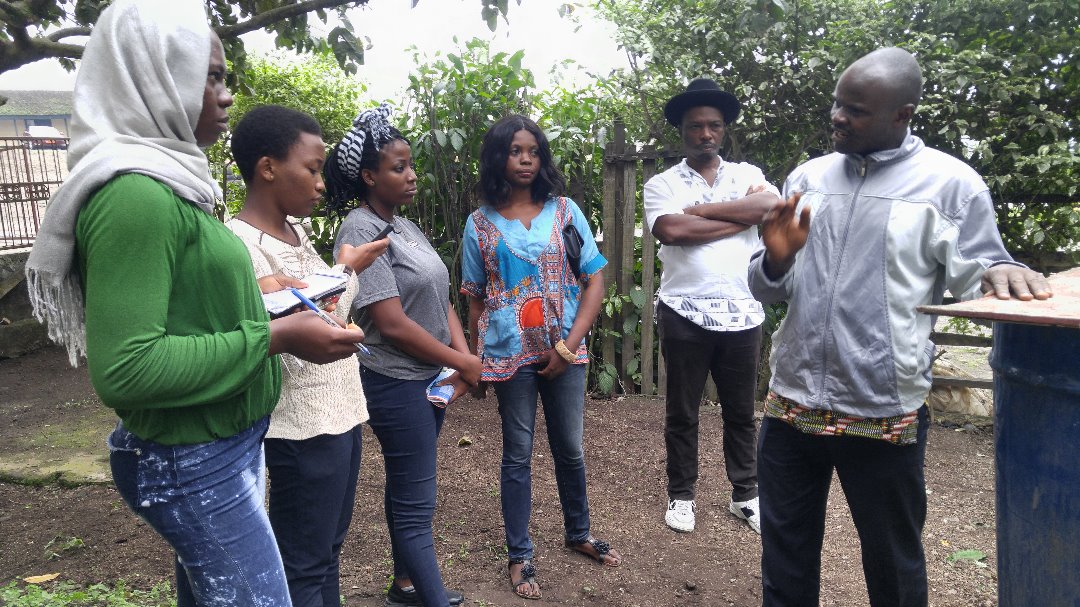 Training women to become mushroom farmers is a highly scalable project for Cameroon. Photo courtesy of RUWDEC
Training women to become mushroom farmers is a highly scalable project for Cameroon. Photo courtesy of RUWDECThe nutritional content of mushrooms has been studied substantially in recent years; the benefit ratio is high when compared to many food types, especially when considering the low demand for water and time they require to mature. If household growing operations were popularized, hunger and even malnutrition could be reduced regionally. Surplus harvests could regularly be sold in the market, supplying fresh mushrooms to entire communities.
Many farmers in Cameroon are susceptible to injury and death as they attempt to return to their properties in conflict areas. They’ll often risk everything to protect what little they have left. Nonetheless, their farming operations usually employ non-sustainable practices that have degraded soils and are water and labour-intensive. Monocropping and chemical pesticides have ravaged large swathes of land that today are deemed exhausted and terminally threatened. Mushroom farming requires far less space, no soil and is a largely untapped market.
 Alice of Cameroon, training in Tilonia, India
Alice of Cameroon, training in Tilonia, IndiaAlice and Mary of Cameroon are currently studying to become Solar Engineers at Barefoot College with the support of partner RUWDEC. They’ve taken a great leap of faith by making the journey to rural India, classified as “Solar Mamas” who train for 5 months on how to assemble, install and maintain solar panels and lanterns. They’ll begin the genuine installation process when they return to their communities in Cameroon. This skill provides entire villages with clean, safe light and electricity at a fraction of the cost of kerosene, wood or candles. Alongside Solar training, together with the other women enrolled in their classes, they’ll attend workshops about Women’s Rights, Sanitation, Financial Awareness, Enterprise Aptitude and Digital Literacy.
In addition, we discovered their enterprise and interest in the expansion of mushroom cultivation and were motivated to take their learning endeavour one step further. Members of Barefoot’s staff took Alice and Mary to Indian farms to visit with other cultivators and merchants in the mushroom business.
Thanks to Barefoot College, we really learned a lot here
Explains Alice. Simpler methods of growing such as using clear plastic bags to grow mushrooms inside for greater visibility help to save time, while different tools can make the labour easier. Controlled temperatures using two separate rooms increases yields and survival rates, while switching to alternative materials can reduce costs and foster more organic processes. Gained insight on product sales can help their profits increase as well. “We would love to take more training.”
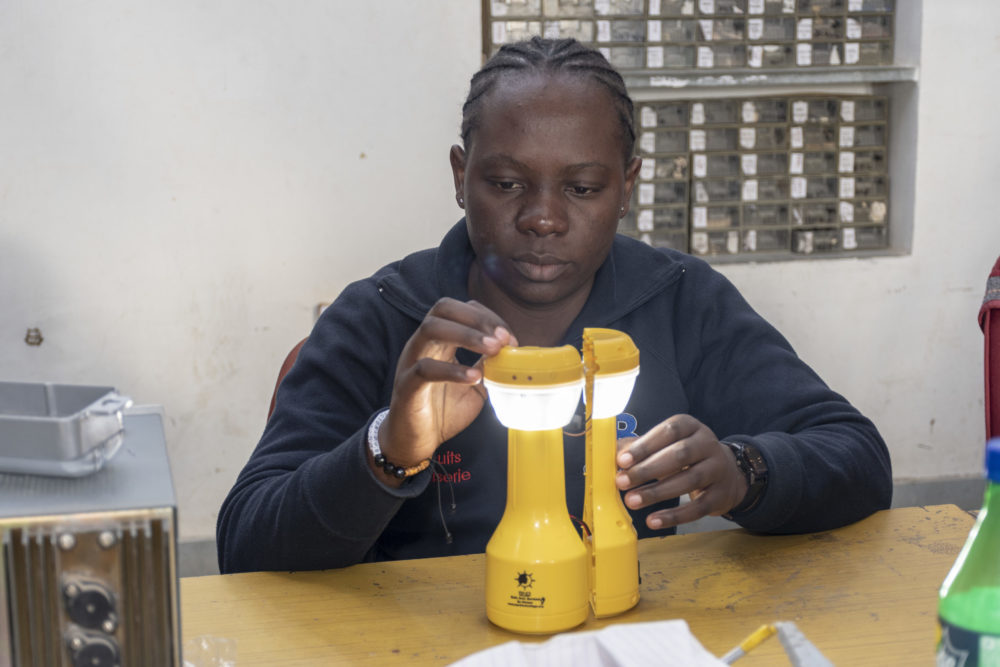 Mary, training as a Solar Mama, is learning the inner circuitry of our Barefoot Divya solar lantern
Mary, training as a Solar Mama, is learning the inner circuitry of our Barefoot Divya solar lanternThe funds the women of the mushroom farm accrue are shared with RUWDEC, maintaining stability within the organization. There are other reasons to focus on women and their empowerment. “Men are hardly interested in the stuff we do. Men want business or other high-paying jobs.” They’ll often migrate to cities to find work or education, and choose not to return to their communities. Women are much more likely to commit to their families and local communities.
Barefoot College intends to continue supporting the Mamas’ endeavours with RUWDEC. As fresh mushrooms have limited shelf lives, dried mushrooms are a more tenable option. They’re hoping to acquire a solar dryer to improve their operations. There’s also interest in upgrading supplies, facilities and train more women both in growing and sensitization. Finally, self-propagating spore supplies would reduce costs and contamination issues.
Alice and Mary love mushrooms now. Eating and growing have evolved into passions of theirs. The determination they have to see their business grow and promote innovative, eco-friendly practices across Cameroon is exactly why Barefoot College focuses on women of the Global South. Women are leading the way in Climate Justice and reducing poverty. It is our continued mission to enable, entrust and empower them during every step of their journey.
 On a cultural outing, Mary poses at the Taj Mahal with two Solar Mamas from Thailand
On a cultural outing, Mary poses at the Taj Mahal with two Solar Mamas from Thailand
To support the education of rural women, visit our donations page. You can now also become a monthly donor.

